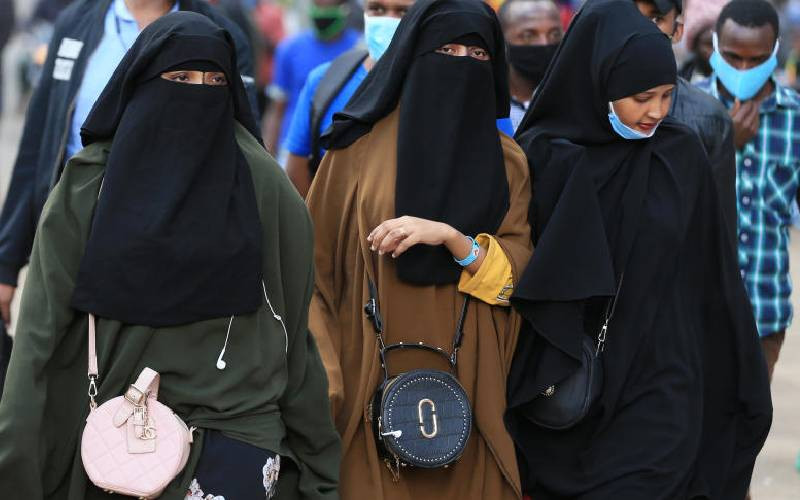
Defence CS Adan Duale stated at the International Quran Competition at Sir Ali Muslim Club: "The government will respect Muslim culture. We will make sure our girls wear hijab. If you have a problem with our girls and wives wearing hijab, you better leave this country because they will wear hijab".
Hijab is the Muslim dress code which governs the area or part of the body that must be covered with appropriate clothing while in public or in the presence of others. This code applies to both male and female. There are varying degrees of what part of the body can or cannot be exposed. Muslim women are expected to wear a loose dress that covers their heads, body and trails just below the ankle while in public.